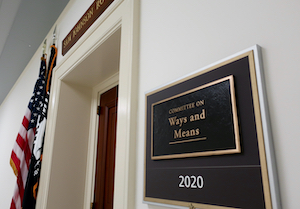 The leaders of the House Ways and Means Committee’s Racial Equity Initiative (REI) are calling for changes to expand retirement plan coverage that could emerge as part of a trillion-dollar infrastructure package.
The leaders of the House Ways and Means Committee’s Racial Equity Initiative (REI) are calling for changes to expand retirement plan coverage that could emerge as part of a trillion-dollar infrastructure package.
In a memo to Ways and Means Committee Chairman Rep. Richard Neal (D-MA), REI Co-Chairs Reps. Steven Horsford (D-NV), Jimmy Gomez (D-CA) and Terri Sewell (D-AL) call for expanding coverage in employer retirement plans and increase retirement savings by making the Saver’s Credit refundable and creating automatic IRAs—measures supported by the American Retirement Association, which has been working with Chairman Neal’s staff on elements of the proposal.
As President Biden navigates the path toward a bipartisan infrastructure package amidst disagreements on how to pay for the legislation, it’s possible the provisions cited in the memo could emerge this fall as part of a larger package that moves through Congress under the reconciliation process. Indeed, Chairman Neal has issued a statement in support, noting that “With Congress poised to make historic investments in our nation’s physical and human infrastructure, we must ensure these bold new policies are inclusive and equitable. These Racial Equity Initiative priorities embrace the principle that we need each other to succeed. As the Committee sets about doing its work in the coming months, I plan to incorporate the Co-Chairs’ recommendations into the infrastructure legislation that will ultimately become law.”
The REI co-chairs note that the Biden administration is currently advocating for the next significant piece of legislation to “actualize the vision set forth in the American Family and Jobs Plans,” as well as implementing policies enacted through the American Rescue Plan.
“Together, Congress and the Administration can meet this historic moment by wielding federal policy to mitigate adverse experiences and outcomes associated with generations of systemic discrimination and racism. These vehicles represent rare opportunities to advocate for restorative and transformative legislation and equally intentional implementation by the Executive Branch,” they wrote.
In addition to expanding retirement plan coverage, a sampling of some of the other changes that fall in the “Economic Equity and Worker Support” category include:
- helping families accumulate emergency savings while increasing targeted financial wellness advice and assistance with saving, debt and budgeting;
- creating wealth building opportunities for children, such as child savings accounts or baby bonds;
- incorporating wealth accruing opportunities for part-time workers with reasonable years of service;
- restoring and strengthening Social Security’s special minimum benefit for long-serving, low-wage workers;
- improving Social Security benefits for caregivers and families, as well as disability benefits;
- making permanent expansions to the Earned Income Tax Credit and Child Tax Credit;
- enacting paid family and medical leave for all workers, including low-income workers, people of color, and care economy workers; and
- prioritizing comprehensive job training and financial support for individuals in economically distressed communities experiencing adverse impacts due to trade policies.
The five-page memo also highlights measures related to transportation, jobs, health care, climate change and community investment that it says can “counteract generations of discriminatory policy across racial and ethnic lines and expand opportunities for historically marginalized communities.”
The Racial Equity Initiative was formed by the House Ways and Means Committee in March, following the release of a Committee report and framework at the start of the year highlighting the policy proposals it will focus on to advance equity in the 117th Congress.

